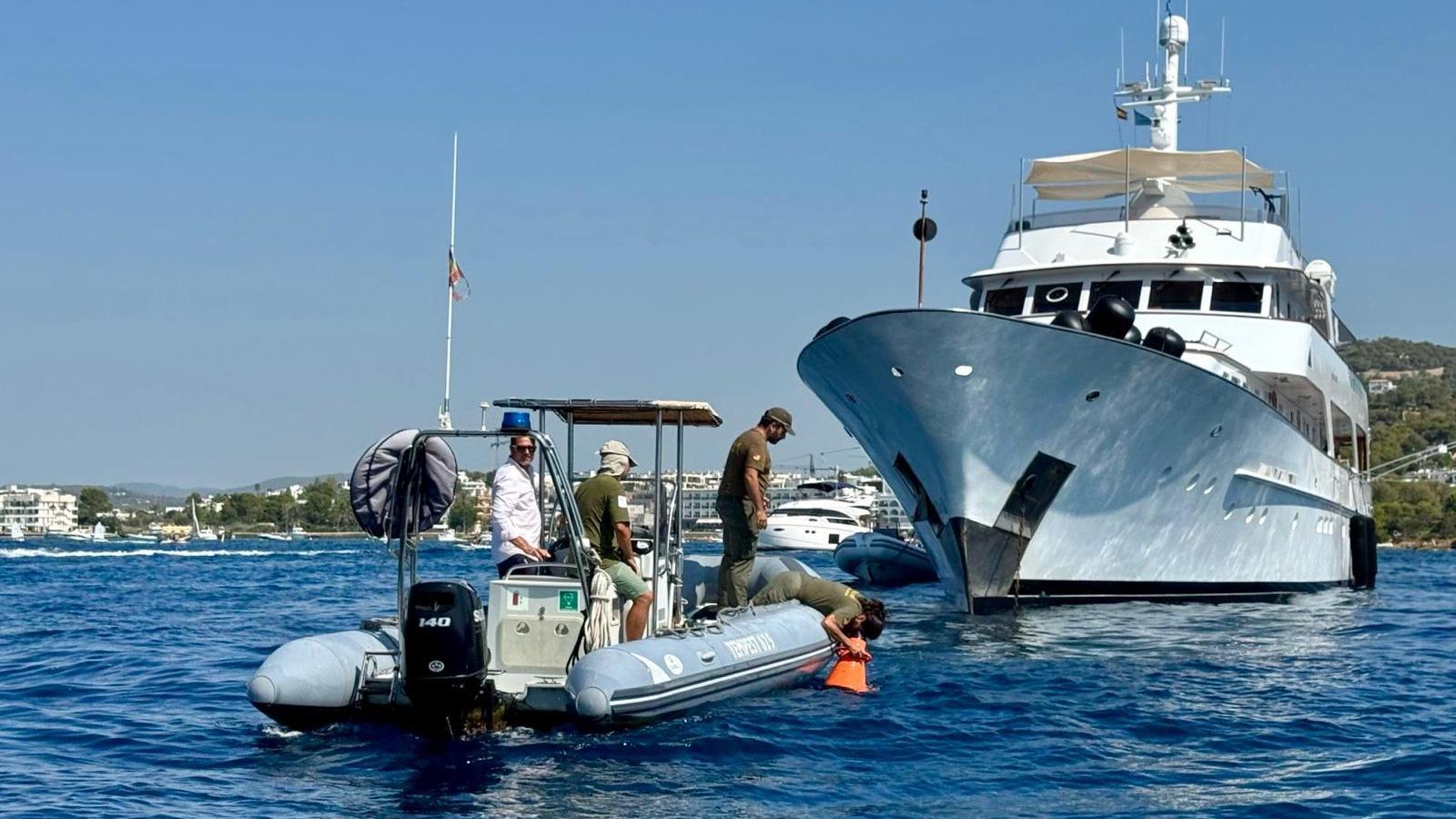Illegal anchoring on posidonia: security guards have moved 41,000 anchors in five years.
Environmental agents have issued 406 reports to report vessels between 2020 and 2025.


PalmEnvironmental officers have issued 406 reports for anchoring on posidonia since 2020, according to data from the Directorate General of Natural Environment and Forest Management. 2021, with 85 cases documented by officers, was the year with the highest number of interventions, while 2024, with 50, was the year with the lowest activity.
These actions typically occur "in cases of repeat offenders or when a boat ignores the instructions of the informant, who initially tries to help the skipper see that he has anchored on a meadow and that he should move the boat," explains Marcial Bardolet, head of the Posidonia Surveillance Service. "The main goal is to provide information to boaters, which is why there are currently 19 patrollers patrolling the coast, always acting cooperatively, not with the intention of imposing sanctions. However, if there is reluctance—in some cases, there is—then an Environmental Officer with the power to impose sanctions is requested," explains Bardo.
In addition to providing information, these watchdogs are proposing that boats on posidonia "move or remove their anchors, as appropriate," explains Marcial Bardolet. This activity is very intense, and between 2020 and 2024, 587,322 anchors were checked, of which 41,115 had to be moved (7% of the total).
45.3% of the reports issued correspond to vessels with Spanish registrations, the rest being foreign. However, the Directorate General's data cannot differentiate between chartered or private vessels, since "many foreigners rent boats in the Islands and they are listed as state-registered," explains a source familiar with the matter who requested anonymity for professional reasons.
In any case, not all reports result in sanctions. "Sometimes it is necessary to confirm the data, the affected parties present allegations, and in other cases there may also be some procedural defect," explain sources from the Directorate General of the Natural Environment. In 2025, 54 reports were issued, which have already resulted in 25 proceedings and 5 sanctions. "There may be more. The sequence is this: report, file, and sanction. Some reports will still be transferred to proceedings and sanctions," confirms the same source.
Individual behavior improves
In general, technicians and specialists working at sea affirm that there is greater awareness. Gigi Torras, a technician with the Pollensa-based NGO Arrels Marines, believes that "the awareness-raising work that has been done and the existence of specific regulations such as the Posidonia decree are noticeable." "It's also true that we still encounter scenes on a daily basis that demonstrate that there is still much work to be done," she warns. For Torras, it is also important "to reduce the number of illegal 'killings' in the Bay of Pollença." "They are everywhere, some already in disuse, and the impact on the Posidonia is serious," she asserts.
Seven Years of Regulation
The decree of The conservation of the Posidonia marked a turning point in the protection of the marine environment in the Balearic Islands. The law, a pioneer in Spain, was created seven years ago to guarantee the preservation of this habitat, declared of community interest and considered one of the great lungs of the Mediterranean.
The decree establishes a series of clear prohibitions: no construction work may be carried out nor underwater outfalls installed; trawling, the dumping of dredged materials, the extraction of aggregates, and aquaculture facilities are prohibited. It also regulates one of the most sensitive aspects: the anchoring of vessels, which is limited and controlled to prevent anchors from dragging over the meadows. The reality, however, is that seven years after the law was enacted, there are still outfalls discharging poorly treated water, "because infrastructure has grown much less than the population and tourism, and that is worrying," explains Nuria Marbà, a scientist at Imedea (CSIC-UIB).
Another important new feature of this regulation concerned the management of posidonia remains on beaches. The decree differentiates between natural beaches, where the removal of remains is generally prohibited, and urban beaches or beaches with services, where their removal is permitted under technical criteria and best practice guidelines. With this package of measures, the Government sought to harmonize economic and tourism activity with environmental protection and position the Islands as a European benchmark in the defense of posidonia, a natural treasure that occupies more than 600 km² of the Balearic coastline.
